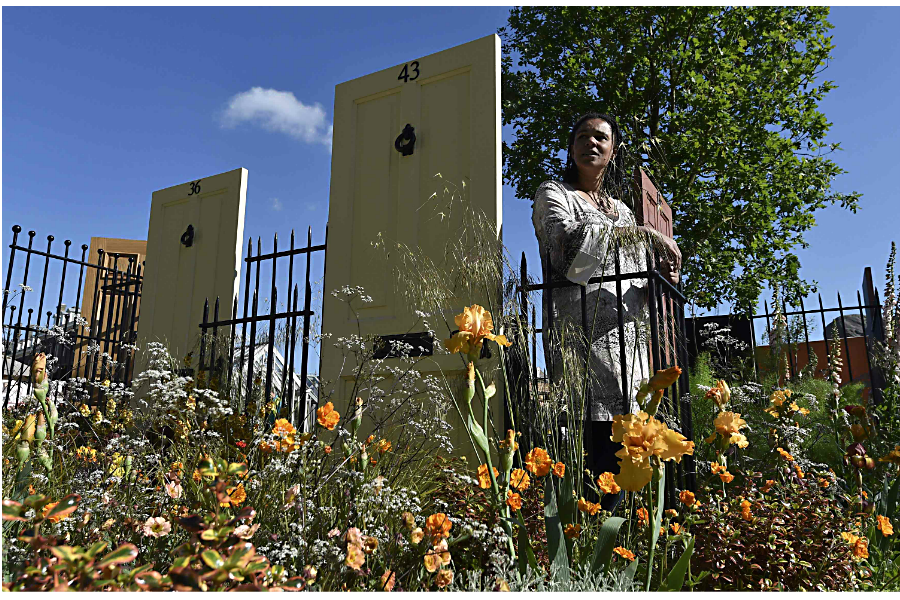At London flower show, one garden aims to raise awareness about modern slavery
Loading...
| London
When Juliet Sargeant was first approached to design a garden at the Chelsea Flower Show highlighting the issue of modern slavery, her initial reaction was shock and surprise.
"It just hadn't occurred to me that modern slavery was happening here in the UK," Sargeant told the Thomson Reuters Foundation.
The gardener and TV presenter said she felt compelled to expose the issue to an audience that may not be aware that slavery exists in Britain.
"It's a unique opportunity to raise this issue with an important demographic. [The Chelsea Flower Show] is such a huge event in the UK and so many people attend.
"It's a difficult subject to talk about, and by using a creative approach, it's a way of introducing the subject in a non-confrontational, accessible way, for people like myself, for whom it is a completely new issue."
The Home Office (interior ministry) estimates that up to 13,000 people are victims of slavery in Britain – forced to work in factories and farms, sold for sex in brothels or kept in servitude behind closed doors.
Last year Britain passed the Modern Slavery Act to crack down on traffickers and bring in measures to protect people feared to be at risk of being enslaved.
Sargeant said she spent some time with human trafficking and slavery survivors, and invited them to grow oak saplings for the garden.
"We had a lovely day a couple of weeks ago on an allotment with some survivors of slavery who are currently living in a safe house," she said.
"They use gardening as a way of getting away from their troubles – getting together, having some fun, growing food. So we're really pleased they are involved in the garden in that way."
She said her team tried to ensure all the plants and seeds used in the garden were slavery-free by calling up each company and checking their supply chain.
"Even with the best of intentions, it's actually very difficult for companies ... to know if their products are actually free of slavery, going all the way back to the raw materials."
The Thomson Reuters Foundation recently launched the Stop Slavery Award to recognize companies that were committed to ending the use of slaves in their products and supply chain.
The global industry is estimated to generate $150 billion a year in profits for those who exploit modern-day slaves.
But fellow gardener and lead campaigner Charlie Hart said the modern slavery garden carried a message of hope.
"It is an open-hearted campaign encouraging people to just think, 'Is there slavery in the products and services that I buy? Or is there slavery in my city, or my town or my street?' " he told the Thomson Reuters Foundation.
"It is a difficult issue to deal with, but together we really can make a difference."
• Reporting by Lin Taylor, editing by Ros Russell. This story originally appeared on the website of the Thomson Reuters Foundation, the charitable arm of Thomson Reuters that covers humanitarian news, women's rights, trafficking, corruption, and climate change. Visit www.news.trust.org.





